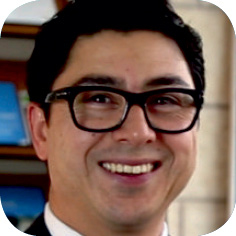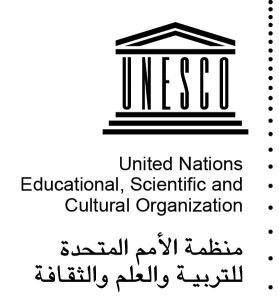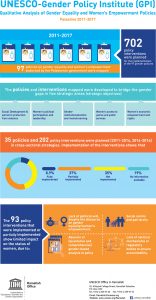The key message of this year’s International Women’s Day in Palestine “My rights, Our Power” is more crucial than ever. We all need to continue promoting gender equality and advance women’s empowerment throughout all our work. Through its multi-sectorial mission – mobilizing for quality and inclusive education, protecting heritage and supporting cultural diversity, promoting freedom of expression – UNESCO has a unique role to play in creating an enabling environment for gender equality. With Gender Equality as one of its global priorities, UNESCO addresses gender disparities and promotes equality throughout the education system, strengthening women’s capacities, supporting knowledge generation and dissemination, and developing the capacities of men and boys to become strong gender equality advocates. UNESCO also ensures that women and men equally enjoy the right to access, participate in and contribute to cultural life, encouraging women and men to benefit equally from heritage and creativity; through UNESCO’s developed Gender-Sensitive Indicators for Media (GSIM), women and girls are also empowered in the field of media and communication. From working with national authorities on curriculum development to civil society actors working in media, UNESCO strives to breakdown gender stereotypes across society, through social inclusion and gender transformative approaches across the organization’s mandate. Through its support to science, culture and the arts, UNESCO seeks to promote women’s leadership and catalize opportunities for young women to enter and be future leaders in these fields.
UNESCO’s National Office in Palestine recently prepared its new Country Strategy for Palestine (2019-2022) to support the government and the civil society to further their development prospects for the people of Palestine through the key areas of UNESCO’s specific competence in education, culture, and media. Gender equality and opportunities for youth, especially girls, are two cross-cutting areas of work reflected in the strategy. Moving forward, UNESCO aims not only to better integrate gender equality into all its programmes at the country level, but also to continue identifying new opportunities and partnerships to promote the rights of women and girls whether in education, culture, or media.
The Country Strategy is enshrined within the overarching framework of the Sustainable Development Goals (SDGs) and the 2030 Agenda premise to “leave no one behind,” and its objectives and time frame are aligned with the UN Development Assistance Framework (UNDAF) (2018-2022), in support of the government’s National Policy Agenda (NPA). UNESCO is committed to ensuring that gender equality and the rights of women and girls remains in the forefront of all its work in Palestine.
In Palestine, the national authorities have articulated a strong political commitment to achieving gender equality throughout the ministries and through their corresponding policy work and actions. UNESCO, in partnership with the national authorities and in close cooperation with involved UN sister agencies and other relevant national and international organizations, will support the implementation of these national goals and support the government to ensure that it fulfills its commitments to the women and girls of Palestine.
Specifically for UNESCO’s Country Strategy in Palestine, gender equality is closely linked to the Education Programme where efforts to promote the right to education for all and apply the concept of inclusive education remain paramount. The strategy seeks to promote gender equality for boys and girls throughout the education system in Palestine by supporting the Ministry of Education and Higher Education, teachers and schools to better assess their capacities and capabilities to reduce gender bias in school practices. The Education Programme also aims to measure the learning outcomes of students, so that the broader forms of inequality that influence the educational opportunities of girls and women as well as boys and men can be addressed.
In the Culture and Cultural Heritage Programme, gender equality indicates that women and men should equally enjoy the right to access, participate in, and contribute to cultural life in Palestine. This human rights-based principle also guides the implementation of UNESCO’s culture-related international conventions, which have been ratified and accessed by Palestine. The provisions included in these standard-setting tools need to be effectively implemented, by actively promoting gender equality among creators and producers of cultural expressions as well as among citizens in terms of access to and participation in cultural life in Palestine.
While the country strategy addresses gender equality and women’s empowerment through its core areas of work in education, culture, and communications and information, an additional outcome is articulated specifically for gender equality, by implementing stand-alone interventions as well. In particular, thanks to the generous support of the Government of Norway and its Representative Office to Palestine, UNESCO facilitated and led the development of Palestine’s first gender-focused think tank, the Gender Policy Institute (GPI). GPI produces, analyzes and shares policy ideas with target audiences as well as serves as a resource for advising, reviewing, and coordinating policies related to gender equality and women’s empowerment. Moving forward, UNESCO hopes to identify and support other innovative initiatives related to this priority area within its mandate.
International Women’s Day is a time to reflect on achievements and challenges and continue to pave the way forward towards gender equality and social justice for Palestinian women and all women around the world. However, as we celebrate this day, we continuously remind ourselves what we need to do throughout this year and the coming years to achieve equality, justice, and security.




